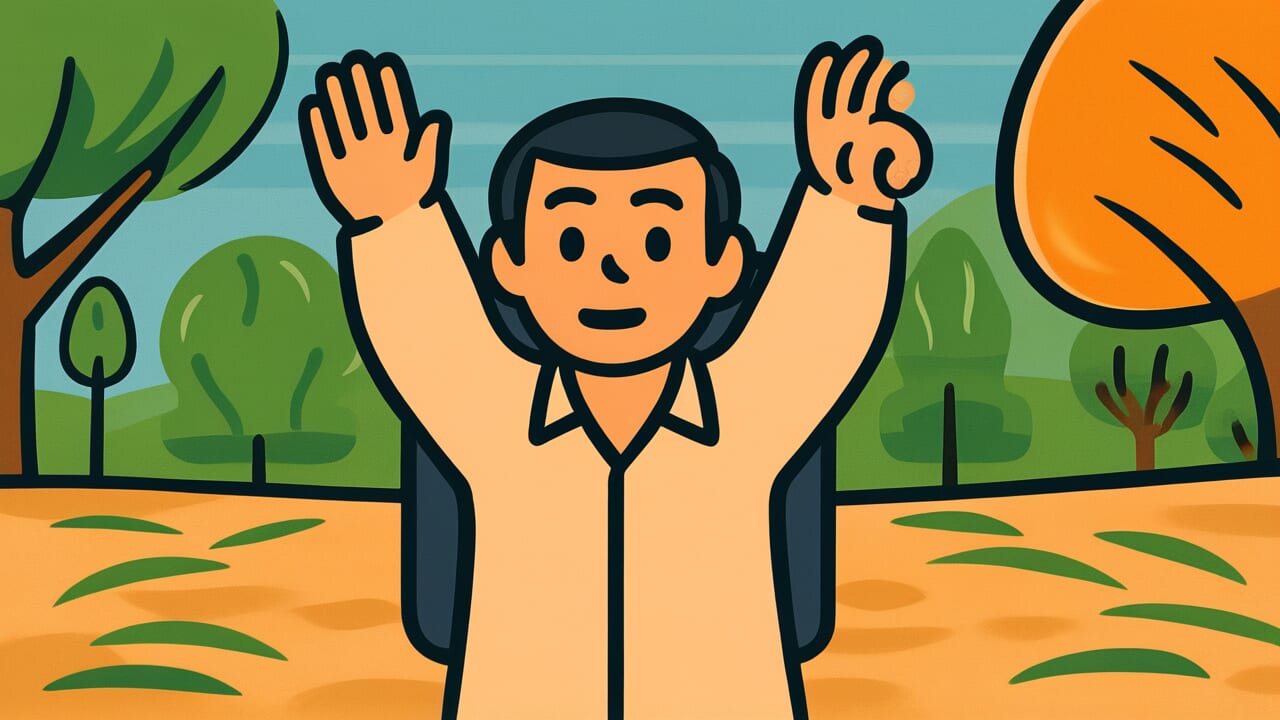How to Read “Even when hot, do not rest in the shade of a bad tree”
Atsukeredomo akuboku no kage ni ikōwazu
Meaning of “Even when hot, do not rest in the shade of a bad tree”
This proverb teaches that no matter how difficult your situation becomes, you should never rely on bad people or unjust methods.
Through the metaphor of refusing to rest under a bad tree even when you’re about to collapse from summer heat, it shows the right attitude humans should maintain during hardship.
People use this saying when someone in financial trouble is tempted by suspicious lenders.
It also applies when someone stuck at work considers dishonest methods. It serves as a warning against making wrong choices in desperate situations.
The reason for using this expression is clear. While the desire to escape immediate suffering is understandable, turning to evil brings greater pain and regret later.
Even today, people understand this as a universal value. When in trouble, you should choose the right path.
This proverb reminds us of the importance of solving problems through legitimate methods, even if it takes longer.
Origin and Etymology
This proverb likely comes from ancient Chinese thought, especially Confucianism. The exact first written source is unclear.
However, the use of “bad tree” clearly reflects Confucian values that emphasize moral good and evil.
Looking at the structure, “even when hot” means “even when suffering from heat.” Notice how it expresses the urgent human desire to find shade under the scorching summer sun.
The situation is relatable to everyone. You’re thirsty, sweating, and desperately want to rest somewhere cool.
“Bad tree” doesn’t mean a dead tree or an ugly tree. It’s a metaphor for something morally “bad.”
In other words, it compares bad people or unjust individuals to a tree. “Do not rest” shows a strong will to refuse.
This expression emerged from the belief that difficult times test human character. Japanese people have long recognized the danger of jumping at easy solutions when struggling.
If you stray from the right path for temporary comfort, you’ll face irreversible consequences later. This life lesson is captured in this striking metaphor.
Usage Examples
- Even though I’m struggling with cash flow, I follow “Even when hot, do not rest in the shade of a bad tree” and avoid suspicious investment schemes
- I’m anxious about not finding a job, but with the spirit of “Even when hot, do not rest in the shade of a bad tree,” I want to avoid exploitative companies at least
Universal Wisdom
This proverb has been passed down because it captures the eternal conflict between human weakness in hardship and the dignity we must still maintain.
Everyone has the instinct to escape physical suffering like heat, cold, hunger, or thirst.
When pushed into difficult situations, our judgment becomes clouded. Options we would never normally choose suddenly look attractive.
Even if the helping hand offered is dirty, we want to grab it. This is a natural human response.
But our ancestors understood that such moments become life’s turning points. Relying on evil might bring temporary comfort.
However, they knew from long life experience how much you lose in return. Your conscience, trust from others, and most importantly, self-respect.
Once lost, these things are extremely difficult to recover.
This proverb also contains hope that suffering always ends. Hot days cool down by evening.
That’s why it teaches us to have courage to keep walking instead of choosing the easy path of resting under a bad tree.
Human dignity may lie precisely in this “power to endure.”
When AI Hears This
The human brain feels losses about twice as strongly as gains. Kahneman and Tversky’s research showed that losing 100 yen hurts as much as gaining 200 yen feels good.
This means the certain pain of current heat feels twice as heavy as possible future moral regret.
What’s interesting is how this proverb shifts the judgment criteria. Normally, people calculate gains and losses using “current state” as the reference point.
If being hot is the reference point, entering shade becomes a clear gain. But this proverb moves the reference point to your future self.
With your post-resting-under-bad-tree self as the reference point, current heat is just temporary. The moral stain becomes the long-term loss.
Also noteworthy is the time discount rate problem. Humans tend to value future rewards at only about half their present value.
That’s why we choose today’s cake over tomorrow’s diet. This proverb functions as training to resist that natural cognitive bias.
By intentionally shifting the reference point, it provides wisdom to override intuitive cost-benefit calculations.
Lessons for Today
This proverb teaches modern people the importance of not losing sight of your values, especially during difficult times.
Modern society pursues convenience and efficiency so much that we sometimes drift toward “the ends justify the means.” But what truly matters is the process of how you achieved your goal.
If you’re facing difficulty now, pause before jumping at an easy solution. Is that choice truly like you?
When you look back later, can you speak of it with pride?
Choosing the right path may take time. It might feel like a detour.
But the experience gained and the trust in yourself become irreplaceable treasures. Overcoming difficulties head-on makes you truly strong.
Today is an era overflowing with information and constant temptations. That’s why this proverb’s teaching shines even brighter.
Having a firm axis and the courage to keep walking the path you believe is right. That’s the surest way to enrich your life.



Comments